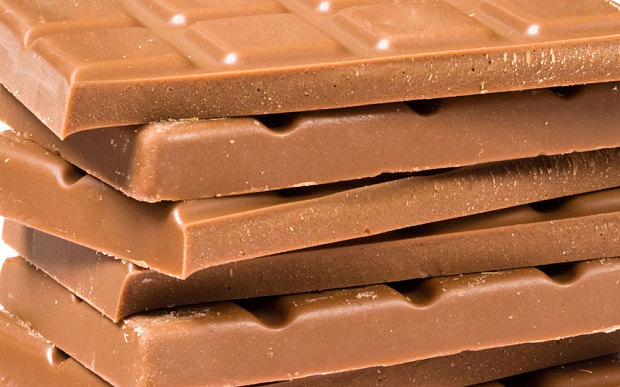"It's good for your heart, reduces the risk of strokes and even helps protect your skin from the sun.
Now, another apparent benefit has been added to the list of chocolate's nutritional qualities: it makes you smarter.
A study, published recently in the journal, Appetite, indicated that people who eat chocolate at least once a week saw their memory and abstract thinking improve.
“It's significant – it touches a number of cognitive domains,” psychologist Merrill Elias, one of the leaders of the study, told the Washington Post.
Mr Elias began studying the cognitive abilities of more than 1,000 people in the state of New York in the 1970s, initially looking at the relationship between people's blood pressure and brain performance.
About 15 years ago, he decided to ask participants of the Maine-Syracuse Longitudinal Study (MSLS) what they were eating, adding a new set of questions about dietary habits.
Leading the analysis of the study, which was held between 2001 and 2006, was Georgina Crichton, a nutrition researcher at the University of South Australia. Ms Crichton recognised the study presented a unique opportunity to examine the effects of chocolate on the brain, using a large sample size of just under 1,000.
Examining the mean scores on cognitive tests of participants who ate chocolate less than once a week and those who ate it at least once a week, the researchers found eating chocolate was strongly linked to superior brain function. The benefits, Ms Crichton told the Washington Post, would mean you would be better at daily tasks "such as remembering a phone number, or your shopping list, or being able to do two things at once, like talking and driving at the same time".
In order to see whether smarter people simply tend to eat more chocolate or if the food does actually improve brain function, the researchers studied 333 participants whose cognitive abilities had been tested an average of 18 years before they were quizzed about what they eat. They found cognitive ability does not predict whether you a chocolate eater or not.
"Our study definitely indicates that the direction is not that cognitive ability affects chocolate consumption, but that chocolate consumption affects cognitive ability," Mr Elias told the newspaper.
Why this is the case remains uncertain. However, previous studies have shown that food containing nutrients called flavanols, such as chocolate, improves brain function. In 2009, research found mental arithmetic became easier after volunteers had been given large amounts of flavanols in a hot cocoa drink.
In 2014, a study also suggested that a diet rich in cocoa could help stave off dementia-like memory loss in the elderly.
However, Mr Elias stressed they weren't suggesting people stuffed their faces with chocolate bars all week.
"I think what we can say for now is that you can eat small amounts of chocolate without guilt if you don't substitute chocolate for a normal balanced healthy diet," he added.
Fuente: www.telegraph.co.uk
